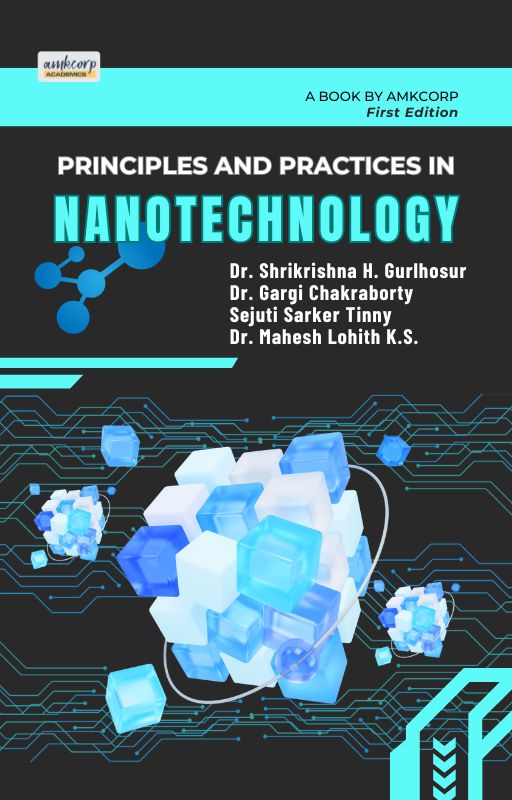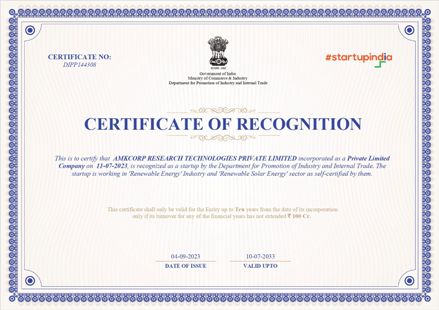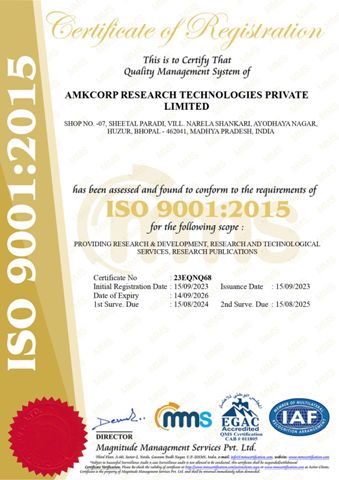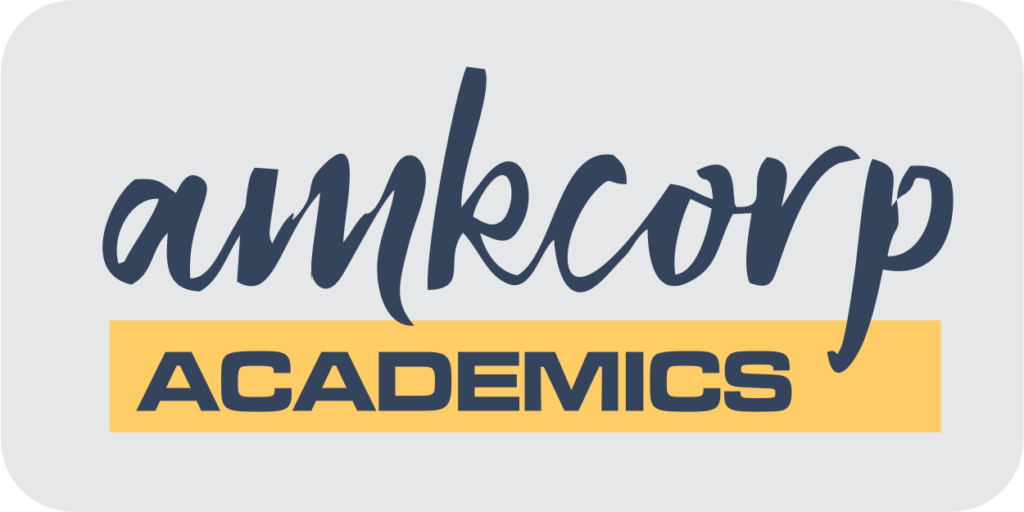
PRINCIPLES AND PRACTICES IN NANOTECHNOLOGY
AUTHOR(S) -
Dr. SHRIKRISHNA H. GURLHOSUR, Dr. GARGI CHAKRABORTY, SEJUTI SARKER TINNY, Dr. MAHESH LOHITH K.S.
DOI – 10.61909/AMKEDTB112438
Genre/Subject – Nanotechnology
Book code – AMKEDTB112438 pgs: 277
ISBN(E) -978-93-6556-349-8
Publication date – 28/11/2024
ISBN(P) – 978-93-6556-010-7
Publication date – 05/12/2024
AUTHOR(S)
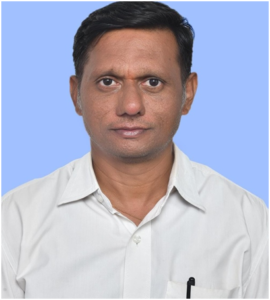
Dr. SHRIKRISHNA H. GURLHOSUR
Dr. Shrikrishna H Gurlhosur is presently working as Associate Professor & Head , Department of Science and Humanities with Rural Engineering College Hulkoti,Karnataka.The college is recognised by AICTE with NAAC -A grade and affiliated to Visveswariah Technological University, Belagavi Karnataka .
He obtained his B.E( Chemical Engg) from Karnataka University Dharwad,MTech ( Industrial Pollution Control) from KREC Surathkal, and PhD in Chemical Engg from Visveshwariah Technological University Belagavi.He is a LM – Indian Institute of Chemical Engineers. He has more than 20 research papers to his credit in National and International Journals.With 24 years of teaching experience he has been attending conferences, workshops, webinars and as a resource person to various Institutes. He is a author for the book titled World of Molecules.His current interests are in the Nanotechnology, Environmental Chemistry and Engineering.
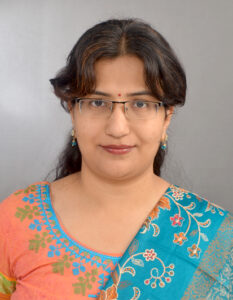
Dr. GARGI CHAKRABORTY
Dr. Gargi Chakraborty is currently working as an Associate Professor in the Department of Electronics and Communications Engineering, Future Institute of Engineering and Management, Sonarpur, Kolkata under Maulana Abul Kalam Azad University of Technology, West Bengal, India. She has obtained her B.Sc Honours in Electronics and M.Sc in Electronic Science from University of Calcutta in 2001 and 2003 respectively. Dr. Chakraborty has been awarded Ph.D (Engg) from Jadavpur University, Kolkata in 2010 for her extensive research on Nanomaterials embedded in MOS Devices, Low Dimensional physics and Nanotechnology. She has been awarded National Scholarship in Graduation level and Paul foundation scholarship during research. During her 15 years of academic journey she has published more than 15 research articles in various journals of repute. Now she is working on integration of AI & ML in Semiconductor Nano devices with several contributions in national level projects. She is also very keen in Management studies with special interests in Human Resource.
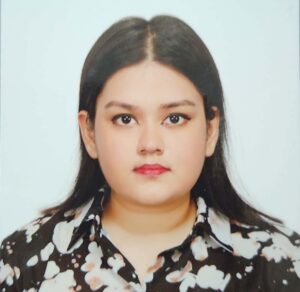
SEJUTI SARKER TINNY
Ms. Sejuti Sarker Tinny is an avid explorer of the intersection between technology, innovation, and imagination. From a young age, she embraced the art of venturing beyond the visible, cultivating a deep curiosity for untouchable ideas and transformative possibilities.
A dedicated researcher and developer, Sejuti has authored multiple peer-reviewed publications across diverse domains, from healthcare AI and cybersecurity to agricultural innovation. Her technical expertise shines through her work in web applications, generative AI, game development, and groundbreaking contributions in data science and machine learning. She has penned three books, seamlessly weaving concepts in artificial intelligence, deep learning, and neural networks into accessible narratives for professionals and enthusiasts alike.
Sejuti’s projects span healthcare systems, travel recommendations, and intelligent food-ordering systems, showcasing her ability to apply technology for societal impact. With a global perspective shaped by national and international conferences, she continues to push the boundaries of research, now delving into nanotechnology to redefine what’s possible.
Driven by creativity and precision, Sejuti Sarker Tinny is crafting a legacy that merges technical brilliance with a visionary outlook, inspiring innovation and meaningful change.

Dr. MAHESH LOHITH K.S.
Dr. Mahesh Lohith K.S. is an Associate Professor and Head of the Department of Physics at ATME College of Engineering in Mysuru, where his expertise lies in multidisciplinary physics. With over 26 years of academic experience, he is a Member of the Board of Studies at various prestigious universities and autonomous engineering colleges, actively contributing to curriculum development and research initiatives. Dr. Mahesh Lohith K S has authored numerous peer-reviewed journal articles, conference papers, and book chapters, while also supervising Ph.D. scholars. His research primarily focuses on Tribology of Materials, Materials Science, and Energy Devices. Additionally, he is an active member of professional organizations such as the Tribology Society of India and the Indian Society for Technical Education.
Beyond his research and teaching duties, Dr. Mahesh has authored books on topic Scientific Foundations of Health. He also serves as a mentor and holds various administrative roles at ATME College, including heading the research centre for physics.
Dr. Mahesh Lohith K S is expertised in computational Science and has Masters Degree in Information Technology.
ABOUT BOOK / ABSTRACT
“Principles and Practices in Nanotechnology” is a comprehensive guide that explores the cutting-edge realm of nanotechnology, bridging fundamental science with practical applications. Designed for students, researchers, and professionals, this book provides a deep dive into the intricate world of nanomaterials, fabrication techniques, and the transformative impact of nanotechnology across various sectors. The text begins with an introduction to the foundational concepts of nanotechnology, encompassing its historical evolution, unique material properties, and potential to revolutionize industries. A significant emphasis is placed on ethical considerations and the future challenges that accompany this rapidly advancing field.
The book systematically navigates through core areas such as the classification and synthesis of nanomaterials, their optical, electrical, mechanical, and thermal properties, and the techniques used to fabricate and characterize them. By delving into top-down and bottom-up approaches, lithography methods, and advanced deposition techniques, it equips readers with a thorough understanding of nanofabrication processes. Beyond theory, practical insights into the environmental implications and sustainability of nanotechnology are also discussed, emphasizing the need for eco-friendly innovations.
The versatility of nanotechnology is highlighted in dedicated chapters covering its applications in medicine, energy, electronics, and materials science. From pioneering drug delivery systems and cancer treatments to enhancing renewable energy storage and creating nanoscale electronics, the text showcases the transformative power of this technology. Readers will gain insights into how nanotechnology contributes to solving global challenges, such as improving energy efficiency, advancing healthcare, and developing smart materials for construction and environmental protection.
Safety, risk, and regulation form a critical component of the book, addressing the health, ecological, and societal risks associated with nanotechnology. Detailed discussions on toxicology, international standards, and frameworks for risk assessment provide a balanced perspective on harnessing the benefits of nanotechnology while mitigating its potential downsides. These topics are pivotal for researchers and policymakers aiming to ensure responsible development and deployment of nanotech solutions.
The book concludes with an inspiring exploration of the future of nanotechnology, including emerging trends, its role in smart cities and space exploration, and integration with artificial intelligence. The potential of nanotechnology to drive sustainable development and foster interdisciplinary collaboration is underscored, encouraging readers to envision innovative pathways. The global initiatives highlighted in the final chapter emphasize the collaborative efforts necessary to advance the field while addressing societal needs.
Structured for clarity and depth, “Principles and Practices in Nanotechnology” balances foundational knowledge with real-world applications. Each chapter is meticulously crafted to engage readers, offering rich illustrations, case studies, and insights from leading experts. Whether for academic learning or professional development, this book serves as an essential resource for anyone seeking to understand or contribute to the rapidly evolving domain of nanotechnology.

